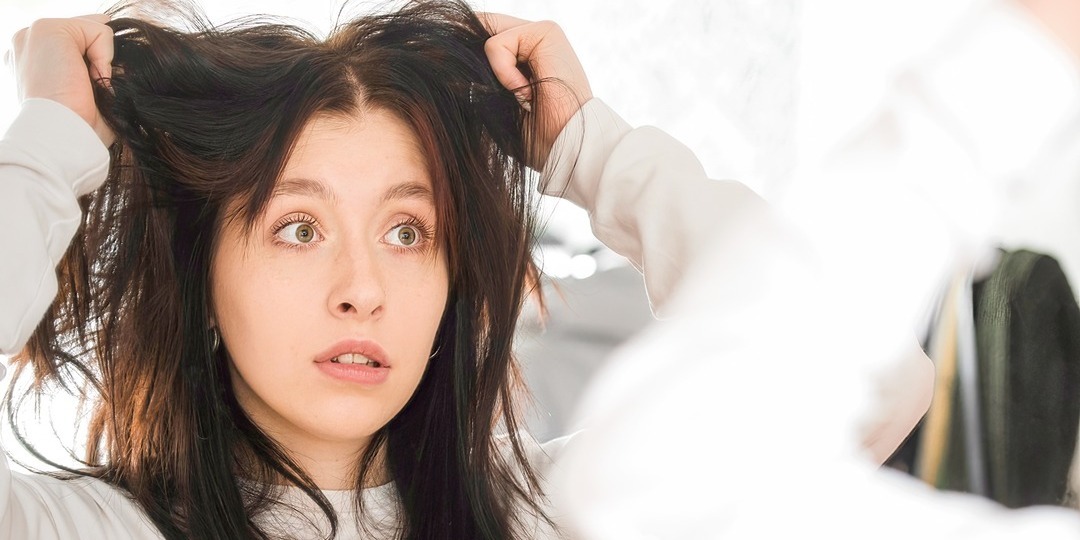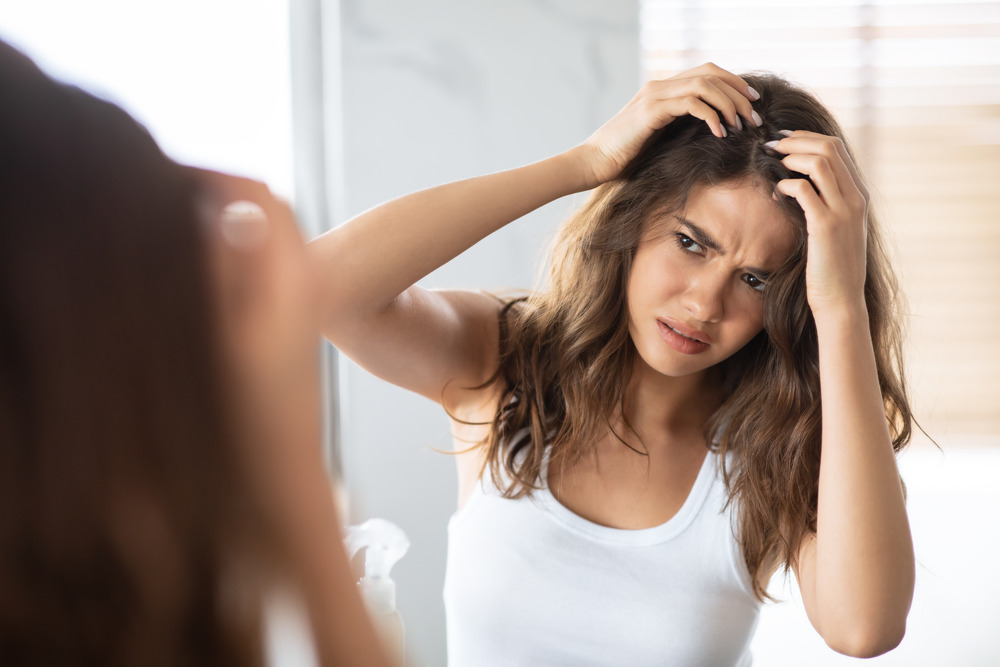
Washing your hair is more than just a routine task; it’s crucial to keeping our scalps happy and our hair looking vibrant and healthy. But what really happens if we skip the suds and let our locks go unwashed for a while?
Dive into the world of hair care with us as we explore the surprising consequences of not washing your hair, from mild annoyances to potential scalp troubles, and learn how to maintain your beautiful mane effectively.
What’s the Point of Washing Your Hair?
Washing your hair might seem like a routine task, but it plays a pivotal role in maintaining hair and scalp health. Daily, hair follicles secrete natural oils while collecting dead skin cells, dust, and other environmental pollutants.
During a hair wash, you remove unwanted debris and odors and keep the scalp free from build-up. This process helps maintain the natural balance, promote healthy hair growth, and prevent issues related to dirty hair.
How long is it safe to go without washing your hair?
The frequency of hair washing varies significantly from person to person, depending on factors like naturally oily hair, lifestyle, and hair texture. People with fine hair might need to wash their hair more often than those with thick hair or coiled hair, as oil distributes more quickly on straight, fine hair strands.
However, excessive washing can strip away natural oils that keep the hair healthy. The key lies in locating a balance and understanding your hair’s needs.
What Happens If You Don’t Wash Your Hair?

1. Dandruff & Dirty Hair
Dandruff, often characterized by an itchy scalp and flakiness, results from the build-up of dead skin cells and sometimes a yeast-like fungus. It’s a myth that dandruff is caused by dirty hair, but not washing your hair can lead to an accumulation of oils and scalp irritation, worsening the condition.
How to treat dandruff & dirty hair:
It’s vital to use a specially formulated dandruff shampoo containing active ingredients to control scalp flaking and irritation; also, ensure you’re washing your hair regularly but not excessively to maintain the natural oils your scalp needs for health.
2. Folliculitis
Folliculitis happens when hair follicles become inflamed, often due to an infection caused by a build-up of dead skin cells and bacteria. Neglecting to cleanse your scalp can create a breeding ground for bacteria, leading to this uncomfortable condition.
How to treat folliculitis:
Keeping the scalp clean is recommended by washing regularly with a gentle shampoo, thus preventing the accumulation of debris and bacteria. Consulting a healthcare professional for targeted treatment can be necessary in persistent cases.
3. Greasy Hair
When hair isn’t washed for an extended period, excess oil accumulates on the scalp, giving the hair a greasy or oily appearance. This oily scalp condition can attract more dirt and pollutants from the environment, making the hair look dull and lifeless.
To combat greasy hair:
Establish a regular washing routine that suits your hair type to remove the excess oil, and consider using a dry shampoo between washes to absorb some of the oil and freshen your hair. Also, avoid excessive brushing or combing, which can distribute oil throughout the hair, making it appear greasier.
4. Ingrown Hairs
Ingrown hairs occur when the hair shaft grows back into the skin, causing irritation and bumps, and this is more common in people with curly or coarse hair. Not washing your hair can build up dead skin cells, oils, and product residue, blocking hair follicles and increasing the likelihood of hair growing back into the skin.
Furthermore, tight hairstyles and vigorous brushing can exacerbate this issue by forcing the hair to grow in different directions.
To prevent ingrown hairs:
It’s essential to keep the scalp exfoliated and clean, which you can achieve by washing your hair regularly with a gentle scrub or exfoliating shampoo; this process helps to clear the follicle paths for proper hair growth. Additionally, avoid tight hairstyles that pull at your scalp and instead opt for loose styles that allow your hair to grow without obstruction.
5. Gross Odor
Unwashed hair accumulates not just oils and products but also environmental pollutants and sweat, which can lead to a noticeable foul odor emanating from the hair and scalp. This smell results from bacteria that thrive in the oily scalp and sweat, breaking down substances that eventually lead to an unpleasant scent.
The odor can be intensified if you engage in physical activities or frequently use products like gels or creams without washing them out.
To combat gross odor:
Adopt a consistent hair-washing schedule to cleanse your scalp of sweat, bacteria, and oils. Also, consider incorporating a light, refreshing hair spray or tonic with antibacterial properties to keep your hair smelling fresh between washes.
And remember, a clean pillowcase can help, too, as bacteria and odors can linger there and transfer back to your hair.
6. Hair Loss
While it’s normal to experience some hair fall, not washing your hair can exacerbate this condition by clogging hair follicles and inhibiting growth. Excessive oiliness, product build-up, and dandruff associated with not washing can contribute to inflammation, potentially leading to increased hair loss.
Moreover, practices like over-washing and heat styling can stress your hair, causing breakage and loss.
How to treat hair loss:
Find a balanced hair care routine, ensuring you’re not washing too frequently or using harsh products that can strip your hair of its natural oils, leading to dry hair. Utilize a gentle, fortifying shampoo to support hair health, and consider discussing with a dermatologist or a trichologist for targeted treatments or supplements to encourage healthy growth.
And remember to minimize heat styling to reduce breakage and maintain your hair’s natural strength.
Keep Your Hair Clean In Its Natural State With Vitamins Revive

Neglecting to wash your hair can lead to various issues ranging from cosmetic problems like greasy hair to more severe conditions such as scalp inflammation and potential hair loss. While it’s important not to over-wash, finding a balanced routine, understanding the unique needs of your hair type, and supplementing with nutrients can all contribute to optimal hair health.
Remember, maintaining clean hair isn’t just about aesthetics; it’s a matter of health and well-being. So, listen to your hair and give it the care it deserves!
To support healthy hair, besides regular washing and using the right products like dry shampoo for in-between days, it’s also essential to nourish your hair from within. Supplements like Vitamins Revive are formulated to replenish hair health-enhancing vitamins and minerals.
They help maintain your hair’s natural state and promote strength and resilience, particularly for those experiencing hair thinning or shedding.
FAQ’s
Is it OK if you don’t wash your hair?
Overwashing can strip natural oils from your hair, making it dull, dry, and coarse. However, not washing your hair enough may lead to dandruff or itchy scalp conditions.
What happens if you don’t wash your hair ever?
This can lead to scalp inflammation, dandruff, excess shedding, and even folliculitis, which are tiny pimples on the scalp.
Can you wash your hair only with water?
As with many hair care trends, certain hair types may see better water-only hair washing results than others, and water-only washing “works best on thick, coarse, curly/coily textures or those that tend to experience dry scalp or hair.









